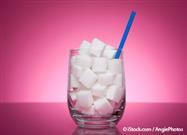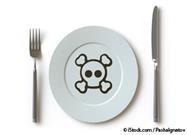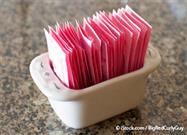Your mind is one of the most significant contributors to your daily energy levels.
 The benefits of high levels of mental energy include confidence, happiness, focus, as well as increased motivation, willpower, and productivity.
The benefits of high levels of mental energy include confidence, happiness, focus, as well as increased motivation, willpower, and productivity.
Additionally, your brain has a significant effect on your level of physical energy. When you have increased willpower and motivation, it can lead to adopting healthier eating habits, less procrastination, less stress, and decreased levels of fatigue.
The way you think also has an astounding effect on the way those around you perceive you and how well you perform. When you feel confident, you look confident, leading to you performing more efficiently and increasing your chances of success.
If you want to improve your overall mental health, here are five ways that you can boost your mental energy today, to start leading a more prosperous life.
Do Things that You’re Passionate About
Spend time every week participating in activities that you’re passionate about. Head outside and enjoy a leisurely walkthrough the woods or break out the art supplies and paint for a couple of hours.
Participating in activities that you enjoy, helps to foster creativity skills in your brain, which can contribute to a healthy mind. Getting involved in activities that you haven’t had the chance to enjoy but have always wanted to do, can do wonders for your mental energy.
Opening yourself up to new experiences will stimulate your brain in a way that can help it to adapt to new environments.
You can also help to sharpen your brainwave patterns by diversifying the activities that you engage in. Trying something new will boost your mental energy.
If you don't know where to start, head to your local community center to see what kinds of programs they have to offer, or check out Facebook to see if there is a group in your area. If you can't find something, take the initiative and start one in your community.
Participating in new activities that are outside will boost your energy even more because sunlight, provides your body with Vitamin D, which is essential for increasing your energy levels. If you start to feel tired at work, take a short break and head outside for a quick walk.
Meditate
A great way to boost your mental energy is to practice meditation on a regular basis. Meditation is nothing more than being present in the world around you and being conscious of your mind and breath.
Many people find meditation to be extremely helpful when they are dealing with real-world situations and remaining focused on difficult tasks throughout their day.
When engaging in meditation, it is important to not think about the future or past but to be present in the moment. Along with providing you with a boost of mental energy, mediation has a plethora of other benefits that will leave you feeling happy and healthy.
Meditation can help to reduce pain and enhance your immune system, will help to reduce feelings of anxiety, depression, confusion, and anger, as well as increasing blood flow, which can help alleviate fatigue.
Practicing meditation in the evenings, before you go to bed, can also help to eliminate insomnia and improve your sleep, which is essential for keeping your energy levels high. Meditation will help to retrain your brain, reducing your worries and bringing you into the moment.
Meditation has also been shown to naturally increase the production of melatonin in your body, which will lead you to sleep more deeply, more soundly, and more effectively, allowing you to feel more refreshed and revitalized the next day.
If you’re new to meditation, there are a ton of resources online and at your local library to help you get started.
Make Sure You’re Drinking Enough Water
Drinking water and brain function are integrally linked. When your brain doesn’t receive enough water, it can cause numerous symptoms including problems with focus, memory, brain fatigue, and brain fog, and can lead to depression, headaches, sleep issues, and anger.
Drinking enough water is the solution to almost every health issue.
Increasing your intake of water will keep you hydrated during the day, and rejuvenate a lethargic brain.
The cells of your brain require twice as much energy than the other cells in your body. Your mind is one of the most important organs in your body that needs to be fueled.
Drinking water gives the brain the electrical energy that is required to function correctly, including the thought and memory processes. When you provide your mind with an adequate supply of water, you will think faster and be more focused and will be provided with greater clarity and creativity.
Medical professionals recommend that you should be consuming at least 64 ounces of water every day. This is equal to eight, eight-ounce glasses of water or four plastic bottles of water a day.
When your brain doesn't get enough water, you will begin to experience issues with your focus, memory, and have trouble sleeping at night, all of which will deplete your energy and leave you feeling fatigued.
If you find that you aren’t getting enough water throughout the day, try carrying a bottle of water around with your and see how many times you can fill it up throughout the day.
You can also get more water, by drinking teas and eating foods that have a high water content, like watermelon or celery.
Get More Sunlight
In order for your body to function correctly, you need to expose yourself to sunlight. Studies have shown that there is a strong correlation between people who work after midnight, or in locations that have no natural light, like mine shafts or dark factories, and mental health issues like depression, sleep disorders, and other cognitive problems.
This is as a result of their circadian rhythm patterns being skewed. Your circadian rhythm is your 24-hour internal clock that runs in the background of your brain and cycles between sleepiness and alertness at regular intervals.
The sun is one of the primary sources that can provide your body with Vitamin D. Low levels of Vitamin D are associated with various cognitive deficiencies. These deficiencies include the ability to rationalize and calculate numerical figures.
Getting enough vitamin D can also reduce your risks of developing diseases that indirectly affect the brain’s functioning, like hypertension and cardiovascular disease.
Increasing your body’s level of Vitamin D isn’t the only benefit you can gain from increasing your exposure to the sun. Exposure to more sunlight can also influence your mood and mental health.
It can also help to regulate your circadian rhythms, an effective therapy against depression. It's essential that you spend some time outside every day if you want to maintain your mental energy levels.
Improve Your Social Relationships
If you want to keep your brain healthy and your mental energy full, spend time with loved ones and those who have a deep insight into life. Too often, in our hectic world of constant work, school, and other demands, we often forget to appreciate the people in our lives.
Studies have shown that having a stable support system and meaningful friendships are essential if you want to have a healthy and energized brain.
According to a meta-analysis of 148 studies, people that have stronger social relationships have an increased likelihood of survival as opposed to those with weaker connections.
In other words, those who have stronger relationships with those around them are more likely to outlive those with weaker connections.
Recent research into the impact of social relationships on overall health has shown that the stronger your relationships with friends and family the healthier you'll be. Having strong social support has shown to have a positive impact on your cardiovascular health, neuroendocrine system, immune system, and inflammatory process.
We are naturally social people, so it shouldn't be a surprise that building healthy relationships, not only provide us with mental energy but can make us happier in our lives. To increase your mental energy, be sure to spend time with people who think positively and increase your energy levels.
Work to keep your relationships healthy and try not to neglect family and friends when your life gets busy. If you find that you need to build a stronger support system, take the time to create a game plan for meeting and spending time with great people, and stick to it.
Conclusion
Energy is your most precious resource, without it, you can't do anything more than go through the motions of life. When you have energy, you're able to engage at work and in your relationships and enjoy being alive.
While its natural for your energy to ebb and flow throughout the day, when you engage in bad habits that deplete your energy levels, it can leave you feeling chronically fatigued and overly exhausted.
When your energy levels drop, and you struggle to make it through your day, these five, natural strategies can help you boost your energy levels instantly and keep you from fighting with fatigue and exhaustion.

















